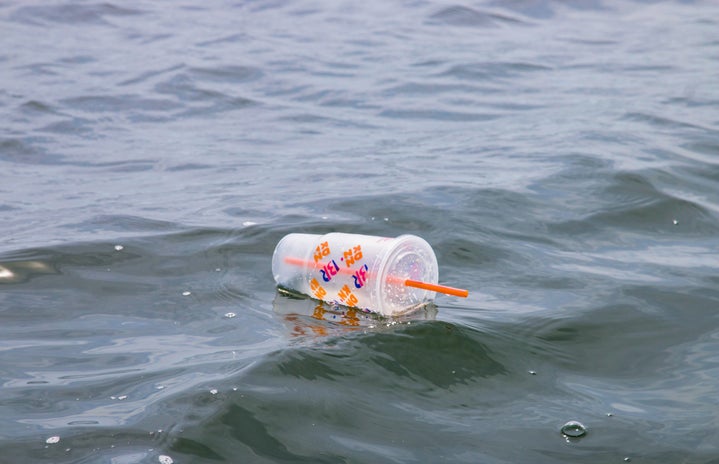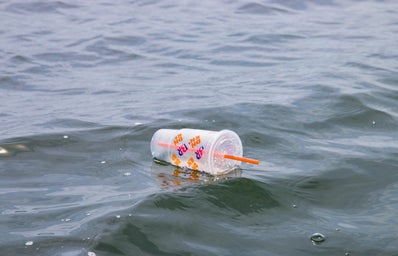Another year over already? COVID has definitely blurred the lines of space and time, and I can say for this new year I’ve decided to undergo a transformation: one that will change my habits, daily life, and diet.
Unlike my past New Year’s resolutions, which include drinking more water, eating healthier, and working out more, I’ve decided to take my resolutions away from bettering my image and body to bettering the earth. I’ve always thought of myself as a pretty sustainable person; I recycle every chance I get, I don’t waste food, and I don’t fall into capitalism’s trap of fast overconsumption. However, this year I took a hard look at those habits and when paralleled to the crisis this world is facing, I’ve decided: they’re not enough.
I think what keeps everyone, and myself, from living more sustainably is the fact that it’s turned into a defeating, gratuitous task. This seems to especially be the case when every day more reports, studies, and findings show that things are far from getting better. Since 1901, sea levels across the globe have risen nearly 20cm; the world is heating so fast we are on track to increase 4 degrees celsius by 2100; and extreme weather events such as droughts and floods are becoming both frequent and intense, all according to The Climate Reality Project.
The growing inequality between the rich and poor is another international failure due to the climate crisis. The broader population has no choice but to live unsustainably. They literally and monetarily can’t afford to do otherwise. The effects are beginning to show in Canada as well, as seen with the latest inflation rates. How can we even hope to live more sustainably? It’s too easy to fall into patterns that will save us money that ultimately leads to more destructive habits.
Although this has been a dreary yet true introduction to the international climate crisis, I hope it inspires you to try and follow the guide below on how to easily and affordably become more sustainable.
Save on Lighting energy
This is an incredibly easy way to live a little more sustainably! It will cost you zero dollars and will actually save you money. One of the best practices I’ve found to do this is to use natural light. If you have the chance, open the blinds and have that sunshine come through your window instead of turning on every light in your room. If it’s dark outside or you work in a shaded part of your living area, change your bulbs to LED lightbulbs. These bulbs require 75 per cent less energy than incandescent (standard) lighting and have more than double the lifespan of standard bulbs. These types of lightbulbs are actually either the same price or even cheaper than the standard bulb.
So what’s stopping you? Let’s save those energy bills and usage!
Stop Using one-use plastics/cups
Yeah, that’s right. I’m unfortunately talking to all of you who go buy a coffee or drink to-go every day. This is such a hard habit to break for the pure convenience factor fast food and coffee shops have. Though companies like Tim Horton’s will declare they’re environmentally friendly, in reality, they along with Starbucks are two of Canada’s biggest plastic polluters. Unfortunately, their cups are lined with plastic and thick dyes which make them impossible to recycle in Canada and subsequently take decades to fully decompose in a landfill. I’m not even going to touch on drinks in plastic bottles — all of us should know how harmful they can be.
So what can you do to be more sustainable? Make your coffee-to-go at home. Although this seems like a daunting task, it will actually save you a lot of money especially when you stop spending $2.50 to $4.50 on a coffee every day. At the very least, try to bring your own cup with you when you go to buy your coffee on the go.
Eat Less Red Meat
As an avid beef-lover, it breaks my heart to say this, but it’s really beneficial for us to stop eating or eat less red meat (AKA pork, but mostly beef). The beef industry is responsible for 14.5 per cent of total man-made emissions in the world, from the enormous amount of greenhouse gas emissions it creates. So, to easily become more sustainable you can cut beef or red meat from your diet — which is definitely going to help the piggy bank since beef prices are sky-rocketing right now.
Although it’s been disputed, many dietary scientists say that eating less beef is better for your health and recommend eating only one to two portions of red meat a week. This is thus, an incredibly easy and cheap way to become more sustainable since other proteins like chicken, fish, and tofu emit less carbon and are more affordable.
Shop at thrift stores
Yes! Did you know this really trendy activity that’s keeping your closet chic? Thrift shopping is a great way to become more sustainable since it’s something you may already be doing. Fast fashion has led to an all-time high of over-consumption and the effects of the industry are a weight on the climate. Not only is it the cause of 10 percent of global carbon emissions, 85 per cent of the textiles made from the industry end up in a landfill. Overall the industry is a strain on energy, microplastics, and water.
You can easily change this practice by buying your clothes second-hand. Ottawa is a really easy place to do this with thrift and vintage stores popping up all over the city. Further, the trend of slow fashion has become prevalent with more people creating new clothes from used textiles. Once you find your store, the possibilities are endless!
Plant Native Plants
If you love to garden and grow plants like me, then this is a really important step in ensuring you’re growing sustainably! Although we can get excited by the vast varieties available to buy and grow, it’s incredibly important to buy and garden plants that are native to the area you’re living in. This is key to the regeneration of our ecosystems and aids local wildlife. This is especially important if you’re buying seeds online, as many can hold harmful invasive species to your ecosystem and to Canada which can be devastating for the plants, animals, and other species.
You can easily find what plants are native to your area by using this tool! Native plants are usually cheaper for your gardens as well since they didn’t have to be grown and shipped from other areas. Needless to say, gardening is always a great initiative to sustain our environment.
These are just a few of many easy and affordable ways to live more sustainably! Although sometimes the task to helping our planet can be daunting, doing our small part is the key to saving this planet. I hope this guide has inspired you to take the time and consider how you can live more green!


